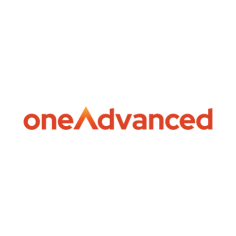Advanced Legal: Time to focus – What to consider when choosing a time recording platform
In this article we adopt a fresh approach in relation to how a law firm should choose its time recording platform by looking at the different stakeholders, their needs and how to address them.
Stakeholder groups and what they value
Lawyers
Time recording matters to lawyers as they’re tasked with hitting aggressive daily and weekly targets. They therefore care about:
- Accessing the means of capture quickly
- Capturing time easily
- Getting help with capturing more time
Accessing the means of capture quickly
Capturing time quickly starts with having an easily accessible, web-based, time recording interface that is available via desktop, laptop, tablet or phone, integrated with other software used by the lawyer.
Capturing time easily
It should also be quick to capture time. The optimal arrangement for many lawyers is for time recording to always be in view. In addition, Natural Language Processing should make it possible to dictate or loosely draft a time entry, using unstructured text that can be turned into a suggested time entry.
Getting help with capturing more time
Lawyers will welcome help with recovering time that’s not been captured as they worked and has been forgotten. The best time recording systems offer ‘passive’ capture, tracking the lawyer’s digital footprint as they go about their working day: viewing web pages, drafting emails or making phone calls.
Assistants
Legal assistants routinely receive unstructured time records in multiple formats from the lawyers they’re entering time for which can arrive in volume and at speed. They will benefit from a facility where they can paste unstructured records from emails or word documents for example, that are then instantly translated into structured time entries.
Billing and finance
Billing and finance recognise that time records need to be compliant with Outside Counsel Guidelines (OCGs). Otherwise much of the captured time will be written down or written off, eroding realisation rates.
Billing and finance teams will want a time recording system that:
- Makes lawyers aware of the relevant OCGs as they capture time
- Validates compliance as lawyers submit time
- Offers flexible and programmable validation
Awareness of OCGs
Compliance with OCGs begins with increasing awareness of the rules, at a time that’s most important for the fee earner to know them. Importantly, at this juncture of the process, the system doesn’t attempt to enforce compliance by restricting or preventing time capture, even if the records are incomplete, partial, or non-compliant. This is because it’s crucial that lawyers aren’t impeded while entering time.
Validation and enforcement
Billing and finance teams will look for a compliance validation ‘safety-net’ when the lawyer submits their time records. Enforcing compliance at the right juncture is important because a compliance breach caught at the point of submission takes just a few seconds of the lawyer’s time to correct.
Flexible and programmable validation
The best time recording systems on the market can generate alerts that give lawyers ‘soft’ warnings. For example, billing has exceeded 95% of the pre-agreed budget for the matter; or ’hard’ notifications can prevent the lawyer from submitting an entry that goes over 100% of the matter budget.
Practice Managers
Practice managers are tasked with making their practice area run as smoothy and efficiently as possible while maximising its economic contribution to the law firm. Practice managers care about:
- Visibility of timekeeping performance data
- Reporting that contributes to accurate forecasting
Visibility of timekeeping performance data
Practice managers want systems that easily show the volume of time submitted across the practice and by lawyer in each period, and via clear dashboards, who has met their targets. It’s also important for practice managers to see how quickly time is captured after the work is completed (velocity of capture), slow velocity results in less accurate records that are more vulnerable to client queries, write-downs and write-offs.
Forecasting capabilities
Practice managers also benefit from time recording platforms that can help with accurate forward planning. Reporting on this forecasted time can help ensure the practice’s resources are fully utilised, but not over-committed going forward. It also enables future revenue forecasting, which helps with investment planning.
IT
The IT team cares about enabling the smooth, effective and cost-efficient practice of law across the whole firm. Therefore, they will want time recording systems that are:
- Robust, reliable, secure and accessible
- Cost-effective, future-proofed, elastic, and extensible
Robust, reliable, secure and accessible
IT will look for platforms that can be depended upon to deliver SLA uptime in excess of 99.5%. Good data security is a key requirement, so IT staff will want to use a time recording platform that possesses world-class data security as standard. This is found in systems that encrypt every bit of data. They’ll also maintain strict system access controls and have industry recognised certifications (including ISO/IEC 27001 and SOC accreditations).
Cost effective, future proofed, elastic and extensible
Cloud-based systems are also more cost-effective and offer elastic capacity, ensuring the firm is only ever paying for what it’s using. There’s no on premises infrastructure to provision and maintain, and IT employees don’t need to spend time worrying about what adaptations they’ll need to make in the future.
Clients
Finally, clients care about being able to capture, control and assess the value for money when it comes to legal spend. They want to work with law firms that provide them with timely and accurate invoices that are compliant with their OCGs. This way they can compare the performance of different suppliers, and that of external legal services, against internal counsel.
In summary
- Lawyers want easy and quick time entry
- Assistants want automation that will do the heavy lifting
- Billing and finance want high-quality and compliant time entry
- Practice managers want visibility and oversight
- IT want low cost of ownership, business continuity, security and extensibility
- Clients want accurate and timely invoices
When a platform meets all these needs, the law firm can be confident that its new timekeeping solution will be widely adopted and successful. To learn more about how Carpe Diem meets the needs of all your stakeholders click here.



